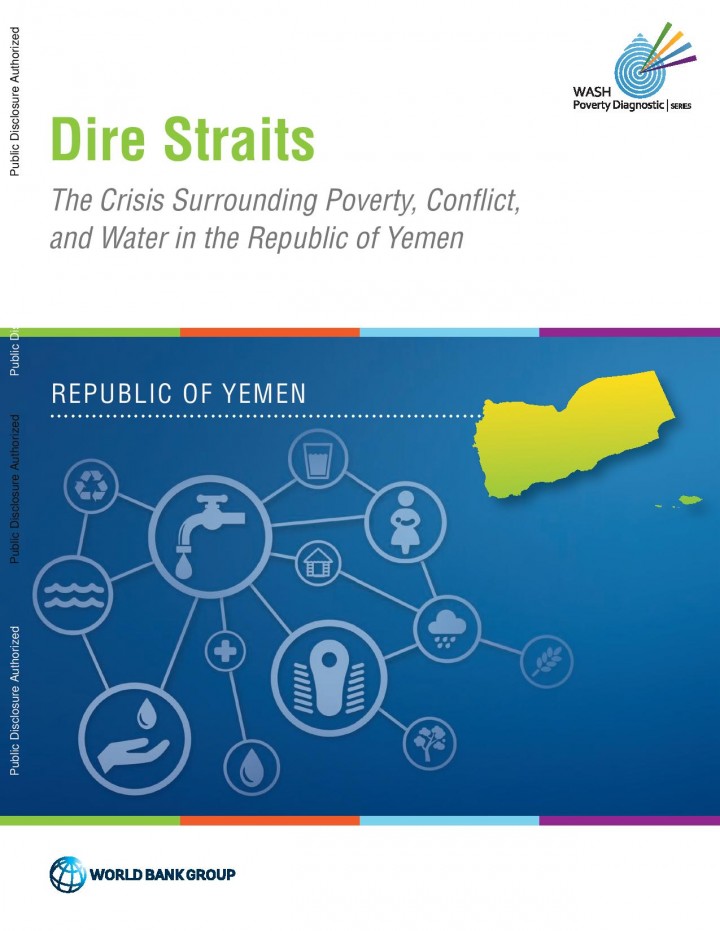Dire Straits The Crisis Surrounding Poverty, Conflict, and Water in the Republic of Yemen World Bank Group (2017)
This report is part of a global set of Water, Sanitation, and Hygiene for All (WASH) diagnostics carried out in countries where WASH services for the poor are deficient and where their might be institutional constraints to improving coverage and services. The Republic of Yemen is an important case because it has an active armed conflict, a plausible increase in poverty over the last decade, and the weakest performance on WASH-related indicators in the region. Analyzing the situation in the Republic of Yemen is significant yet difficult due to the country’s political turmoil since 2011, and, since 2014, the violent and destructive armed conflict. Advances in WASH provision made over the last decade been halted, and the wholesale physical destruction, institutional degradation, and movement of internally displaced people (IDPs) have contributed to an alarming deterioration in WASH services (DAS 2016). The goal of this report is to develop a better understanding of: (a) poverty in the Republic of Yemen; (b) the levels of WASH access and service delivery; and (c) the institutional (and to some extent political and economic) constraints to WASH delivery in the Republic of Yemen, recognizing that this is mostly a pre-conflict analysis. The report also provides pointers for how WASH strategies and investments may be recalibrated in the post-conflict period to assist both short-term recovery and medium-term structured development, and how short- and medium-term strategies may fit into a long-term vision of universal access to safe water and sanitation. These suggestions are given with priority to the poor, and noting the country’s extreme water scarcity. The diagnostic utilizes the Household Budget Survey (HBS) of 2005/06 and 2014, which are nationally representative household surveys (WHO/UNICEF 2014). The HBS data contain information on the household roster, activities, dwelling conditions, health, education, anthropometrics, income, durable goods, and consumption. In addition, the National Health and Demographic Survey 2013 complements HBS datasets and is also used. With regard to the institutional analyses, the diagnostic relies on a largely desk based analysis to identify core problem areas for further investigation and desk-based mapping of structures and relationships to identify a set of priority problems. It relies on the availability of relevant data and secondary literature. Therefore, this diagnostic generates hypotheses to be further tested and indicates areas for further analysis. Further, given the conflict in the Republic of Yemen, the diagnostic focuses on short-term sector reconstruction efforts than on longer term institutional reform, although the latter is important given the extreme water security situation in the Republic of Yemen, and therefore remains within the report’s line of sight.
Bibliographic information
World Bank Group (2017). Dire Straits The Crisis Surrounding Poverty, Conflict, and Water in the Republic of Yemen International Bank for Reconstruction and Development / The World Bank, Washington, USA
Filter / Tags
English
External links
Dire Straits : The Crisis Surrounding Poverty, Conflict, and Water in the Republic of Yemen
Downloads
Dire Straits : The Crisis Surrounding Poverty, Conflict, and Water in the Republic of Yemen
Type: application/pdf
Size: 8.52 MB

